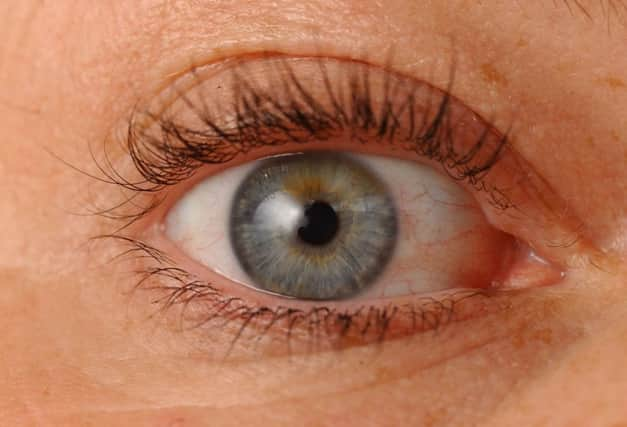Leaders: Concerns over access to personal information


Last night, the Scottish Government narrowly won a debate on a plan to allow public bodies to access data through an individual’s NHS number on a database called NHSCR. Everyone born in Scotland or registered with a GP north of the Border has a Unique Citizen Reference number held in the NHSCR.
Data is already held here, but the government wants data currently held by the National Registers of Scotland by postcode to be added to the register and shared with other public bodies.
Advertisement
Hide AdAdvertisement
Hide AdThe adding of the postcode information would also remove the consent currently required by the address system.
So is this ID cards by the back door as the opposition parties claim, or is it, as John Swinney says, just the addition of individuals’ postcodes to a database that has existed since the 1950s?
Advantages, says Mr Swinney, include helping to trace children missing from education and identifying foreign patients accessing the NHS. But clearly, one of the big advantages from Mr Swinney’s point of view is that it would make it harder to avoid paying Scottish rate income tax (SRIT), which will be introduced next year. Better ways of ensuring everyone due to pay tax does pay that tax has to be a good thing, although it seems remarkably at odds with the Scottish Government’s position on poll tax defaulters.
Mr Swinney has given assurances that no medical records will be shared, but there have to be causes for concern. Losing the crucial consent from the public for the information to be stored under postcode is one. The sheer breadth of the public bodies this would be available to is another. It has to be a valid question as to why Scottish Canals, Quality Meat Scotland and even the Botanic Garden are to be given access.
Thin-end-of-the-wedge arguments tend to perform poorly, because no-one can predict the future with any accuracy and political environments can change rapidly. But that is not the same as raising legitimate fears about the security of access to the data. The creation of one universal number, the huge amount of data stored by postcode and the number of organisations that would have access must increase the opportunity for abuse, either by malevolent external hackers, from rogue individuals within the permitted network, or by a government agency itself. Surely the least that can happen is that safeguards are spelled out in parliament so that there are reassurances on these reasonable points before this can finally be given the go-ahead.
Tell the truth, kind or otherwise
Winston Churchill, the wartime leader and writer of a six-volume work on the Second World War, is often quoted as saying: “History will be kind to me for I intend to write it.”
Now Alex Salmond is due to publish a book on the 100 days leading up to the referendum with the quite unequivocal title: The Dream Shall Never Die.
The independence referendum was truly a significant part of this nation’s history. There are many aspects of which the nation can be proud: the way it engaged ordinary people and they became active in political life, the passion and spirit of articulate debate, the way young people given the vote for the first time got involved and took part, and the fantastic turnout on 18 September. It can with certainty be said the nation has spoken.
Advertisement
Hide AdAdvertisement
Hide AdThe two years in the run-up to the referendum were full of twists, turns and negotiations so in some way it is a shame that the former first minster is limiting it to the final 100 days. Although perhaps there are already plans for a prequel.
Obviously, Mr Salmond was right at the very heart of the biggest political debate this country has witnessed for probably hundreds of years. His revelations of exactly what happened will be fascinating and bring many hidden facts out. His insights into why he took the decisions he did will be equally fascinating – there are many questions to be answered.
Mr Salmond will be writing history. It is a profound hope that he does so purely to shed light and give people a better and more rounded understanding of a pivotal political period and not with a view as to whether it is kind to him or not.
FOLLOW US
SCOTSMAN TABLET AND MOBILE APPS